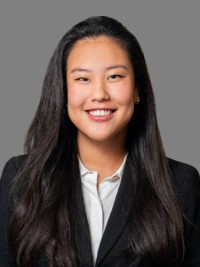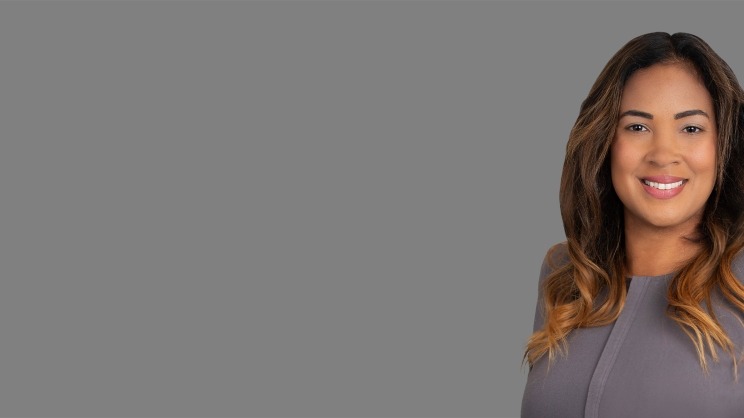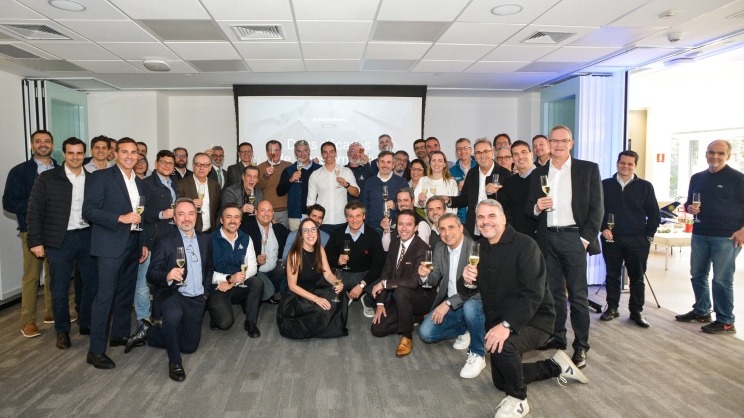Campus Spotlight: Belinda Zhang

How Applying Feedback and the 80/20 Rule Are the Secret Ingredients This Analyst Is Utilizing to Face Learning Curves and Ensure Success in Consulting
Belinda Zhang is an Analyst with Alvarez & Marsal’s (A&M) Corporate Performance Improvement (CPI) practice in New York, New York. She earned a Bachelor of Science in policy analysis and management from Cornell University.
In this Q&A, Belinda discusses the unexpected lessons from her college experience that significantly impacted her career, the supportive and authentic culture at A&M that motivated her to join full-time and the crucial role of the 80/20 rule in managing her responsibilities during her internship. She also highlights the benefits of participating in A&M's Advancing and Cultivating Emerging Leaders (ACE) program and emphasizes the importance of seeking and applying feedback for professional growth.
Reflecting on your college experience, what unexpected lessons or insights have you gained that have significantly impacted your career?
My major was on the smaller side in college, with only around 50 people each year. Because of this, we formed an extremely tight-knit community and took most of our classes together. I’ve always been more independent with my academics, but this environment taught me to lean into my classmates and ask for help when needed. Learning to ask for help in college has translated in my career to utilizing my analyst class and even senior resources as a safety net when I feel stuck. This has been extremely valuable during times with a steep learning curve, such as beginning a new project or being tasked with something unfamiliar. I would not be where I am today without the help of the people around me, and I’m so thankful to work in such a supportive community where no question is too silly to ask.
Why did you choose to intern at A&M?
I’ve always thought the term “networking” was rigid and feared the monotony of coffee chats. However, every chat I had with an A&M employee never felt artificial or like I had to sell myself to the other person. Even during my interviews with the firm, it felt like everyone was trying to get to know me as a person rather than running through a list of cookie-cutter questions. They genuinely value different perspectives and see their employees as human beings first.
What motivated your decision to join A&M full-time?
Having had very little experience with the corporate world before interning at A&M, most of my knowledge about corporate life came from friends, siblings and the internet. As a rising senior in college, you can imagine the shock when I was asked to actively participate in a three-person workshop with the client CFO. The group welcomed my ideas and encouraged questions to ensure my understanding. This experience embodied A&M’s willingness to invest in their people and their immense trust in their junior resources. Coming back full-time would provide endless opportunities for personal and professional growth. A&M’s belief that everyone brings a different and valuable perspective has allowed me to grow personally and professionally.
Which office are you based in, and how would you describe the office culture?
I once heard a fellow A&M employee call the New York City office a well-oiled machine, and I couldn’t agree more. New York gets stuff done (as do the other locations), but we have a solid culture to match. The annual golf tournaments and frequent happy hours have kept the New York office tight-knit, and it’s even a fun time in the office during the work week. Although travel is a big component of the job, many New York employees try to come in throughout the week. It’s such a great feeling to see everyone in the office so often, especially when my coworkers have become some of my closest friends.
Essential Tips to Juggle Competing Priorities and Manage Time Effectively
Reflecting on your career's early stages, what unexpected challenges did you encounter, and how did you navigate them to emerge stronger?
One of the main challenges I encountered during my internship was prioritizing and managing all my responsibilities. The CPI internship program was split into a client project, project development work and data analysis and modeling training. When I was staffed onto my client work, the project had already begun its second phase, and I had to quickly get up to speed while juggling the tasks given to me on the project. To keep up with the two other program pieces, I had to learn an extremely important lesson in consulting: the 80/20 rule. This rule posits that 20 percent of your effort achieves 80 percent of the results, whereas the last 20 percent of the results require 80 percent of your effort. Along with communicating with my manager to prioritize tasks and set attainable deadlines, the 80/20 rule kept me from working on any task for too long, which allowed me to spread my efforts across my different responsibilities.
What advantages or gains have you experienced as a participant in A&M's ACE (Advancing and Cultivating Emerging Leaders) program?
I chose my college major because of the breadth of topics it covered, pulling from economics, government and even psychology. As I transitioned into starting my career, I wanted to continue this standard—as one of the main reasons I chose consulting as a career was to experience a wide variety of industries. ACE has been the perfect program to facilitate this, allowing me to explore all the service lines that Corporate Performance Improvement offers. Nine months in, I’ve participated in Digital Technology Services and Public Sector projects while supporting work in Media & Entertainment and Corporate Transformation Services.
Looking back, what advice would you offer recent graduates about effectively transitioning from academia to the professional world?
A very small portion of your studies from college translates into your career. The most important things that college taught me were never lessons from a textbook, but a variety of soft skills through lived experiences. Most of the knowledge you need for consulting is learned on the job, which is why the learning curve is almost always the biggest obstacle. However, with the grit, perseverance and work ethic you’ve garnered throughout your academic years, the learning curve will be like any other challenge.
Best Practices to Ensure Success in Consulting
What are your career aspirations for the next few years?
I’ve been lucky enough to have several amazing mentors from A&M who have led me to where I am today. I hope to become a mentor in the next few years to pass on the wisdom I’ve gained and continue the cycle for another young professional.
What personal attributes or traits are essential for success in your field, and how do you continually nurture and develop these qualities within yourself?
One of the most critical traits in the consulting field is being able to receive and apply feedback. Since this career requires you to become an expert in various fields in a very short amount of time, there will always be more to learn. Incorporating feedback will not only help the learning process professionally but could also contribute to personal development. A&M believes in 360-degree feedback, meaning feedback comes from superiors but also from peers and those at a more junior level. Being able to continuously seek feedback, both informally and formally, has helped me uncover new strengths to understand myself better and find areas of opportunity to work on.
How do you approach networking and building professional relationships, and what tips would you offer to others just starting?
One of the best things about A&M is how horizontal the firm is—junior resources can easily schedule time with a partner-level employee. However, just because there are more opportunities to chat with partner-level employees does not mean their time isn’t still valuable. When networking, whether with an A&M employee or just networking in general, I recommend familiarizing yourself with their resume or bio and preparing a few thoughtful and personalized questions. During the chat, relax and be yourself, and remember that the person sitting across from you is human at the end of the day. For more formal networking sessions, sending a thank-you note afterward is a nice touch.
What are some notable perks or benefits you've experienced working in the consulting industry?
I’m a big foodie, so food is one of the biggest perks. I love having breakfast, lunch and dinner in a new city with my project team or analyst class when we travel. Even when we aren’t traveling, there are often catered meals for local hub events or opportunities to grab lunch with a friend at one of the many restaurants around the office. There are just so many opportunities to eat!
What's your favorite hobby or activity outside of work, and how did you get into it?
I’ve played sports throughout my life and knew I would have to find a way to stay active after graduation and moving to the city. My co-workers and I have gotten into workout classes (thanks to A&M’s discounted ClassPass benefit) and often go to Pilates or spin classes together. One of my personal favorites has been boxing classes. It’s such a great workout and a fun way to de-stress!
What's something on your bucket list that you hope to accomplish in the next five years?
I’ve been wanting to walk the length of Manhattan—from The MET Cloisters all the way to Battery Park. Something I love about Manhattan is how different each neighborhood is, and it would be so fun to experience all of them in one walk.



